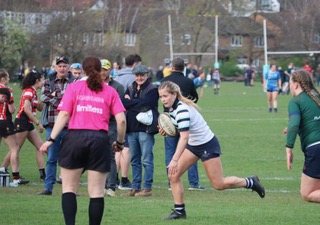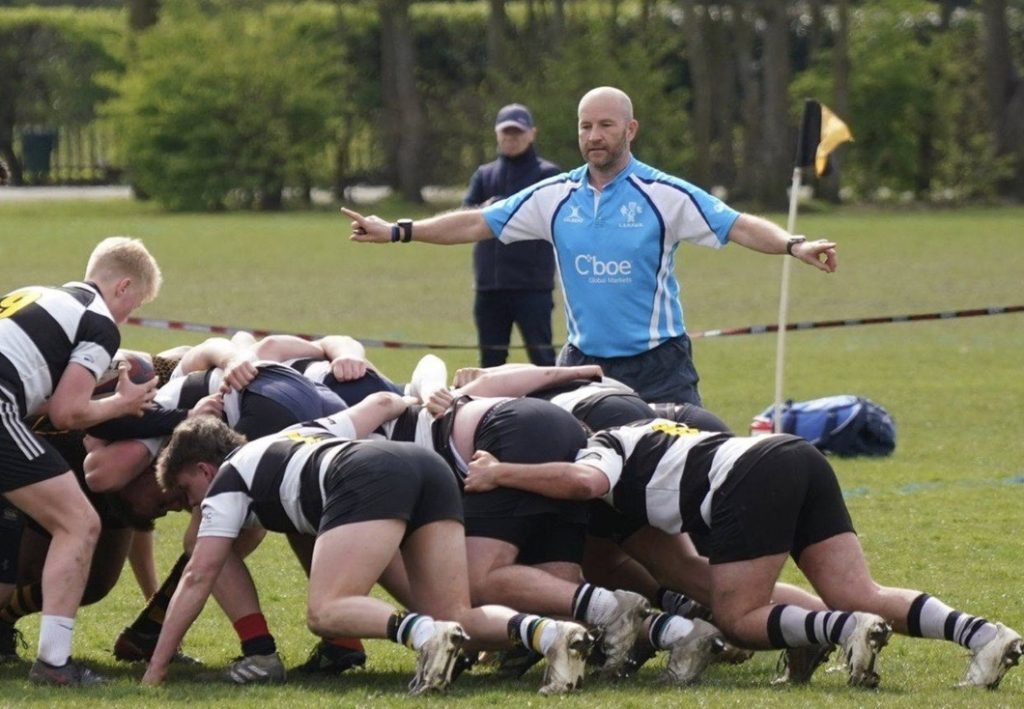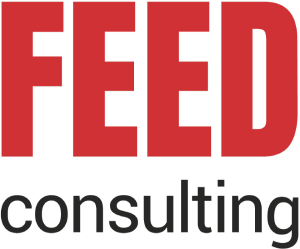Welcome to Feed Consulting
Latest News
News Articles
The Ultimate Leadership Challenge (thoughts from the home front).

April 2024. This summer many of us will see the culmination of 14 years of machination, celebration, frustration and transformation as ‘our little darlings’ experience the delight of A Level examinations.
Over the course of my career I’ve traversed a myriad of leadership experiences. From the fresh-faced army officer, newly commissioned from Royal Military Academy Sandhurst and facing the grizzled, experienced faces of my first command, to navigating complex matrix organisations and the corporate politics of FTSE100 companies. Each has tested, taught and developed me as I adapted to varied circumstances striving to build collaborative and committed teams, achieving clear (not always) goals.
But we all know that the ultimate leadership challenge is not in the boardroom or on indeed on the pitch, it’s at home: motivating a young adult towards exam success in an ‘always on’ world. A world far removed from the 110bps, Apple Macintosh, Top Gun (the original), Cheers watching experience of my own. A world where online and offline boundaries are blurred, constant connection leads to FOMO overload, and social media adds pressure with idealised comparisons and ‘mythical’ lifestyles.
As I attempted to guide an 18-year-old through the academic journey, my tried leadership frameworks have been tested by a combination of the unique dynamics of teenage motivation, and a large helping of personal emotional stakes.
So faced with an enigma wrapped in a smart-phone clutching mystery I have resorted to a repertoire of tactics. From the strategic deployment of Churchillian speeches (met with eye-rolls), to covert operations with the Wi-Fi router. I have leveraged soft and hard influence techniques, including the ancient art of bribery (effective, if financially unsustainable), coerced with peer pressure, and appealed to varying motivations.
Predictably the results have been mixed. One day I congratulate myself on my skill, EQ and wisdom. The next I’m trawling AirBnB, hoping there’s a remote shepherd’s hut free for the next 12 weeks. But as ‘H Hour’ draws near I reflect that there’s something very humbling about trying to leverage your leadership ‘prowess’ on a teenager. And while the emotional stakes turn me into a walking, talking cliché of parental angst, I remind myself that this isn’t just about achieving entry grades, or simply passing the exams; it’s about unlocking a future someone doesn’t yet know they want.
Not all my attempts have been leadership fails, but many make me feel like I’m watching Orange II (a G-class catamaran – I refer you back to previous roles) as she sets off to circumnavigate the globe, but without GPS or a chart – exciting, but just a tad concerning.
While this rollercoaster of unique leadership is humbling (occasionally hilarious), uplifting and daunting, it’s also reminded me leadership isn’t about having all the answers or executing the perfect strategy. Sometimes, it’s just about showing up, willing to laugh at yourself, and remembering that succeed or not, it’s all part of the journey – especially when the audience is someone often concerned with the next ‘Youtuber’ bout, or which crypto has just dropped.
Whether it’s the privilege of leading soldiers across dusty plains, or the satisfaction of nailing that client pitch, this reinforces the truism that leadership is about making connections, adapting to situations, trying, learning, trying again and sometimes just turning up and winging it!
It is a journey of learning and a lifelong adventure. So here’s to embracing the next challenge, whatever curveball is thrown our way!
New Article Coming Soon

New Article Coming Soon

Full article coming soon…
Rosslyn Park School 7s – Metaphors on the touchline of leadership.

March 2024. The Rosslyn Park School 7s is the largest rugby tournament in the world, with over 14,000 boys and girls from 11 to 18, competing annually. So this week I joined the significant ‘law’ (my collective noun, better than ‘confusion’) of referees, testing my ham-strings alongside talented (rapid!) young rugby players. (Note to self. Yoga?)
In between matches I wandered the many pitches watching matches of all ages, while around me I heard tactical pleas from coaches and running commentaries from spectators. As you might imagine, emotions can run high, and it’s part of sport for referee decisions to be scrutinised, queried, and occasionally challenged. I may, in the past, have been guilty (as player, coach, and parent) for blaming the referee as the sole cause of a disappointing outcome.
Much as we’d like to operate with 100% accuracy none of us are going to be error free, so a mild pathos appeal here. There are 21 laws in rugby. Sub-sections and associated elements add up to over 300 laws, sub-laws et al. So, for example, when the ball goes into touch for a line-out, there are 85 elements the referee needs to know, of which there are 15 specific offences they need to look out for, 6 of which are full penalties. Just saying.
One parent I stood next to this week was very vexed, chuntering to his neighbours, his retriever tugging the leash behind him as he strode up the touchline, cursing the ref for “the obvious penalty”.
And this is where my metaphor begins. In the heat of the moment, it’s easy to assume a call is wrong. Spectators, like leaders, often operate from a partial or differing perspective, without full visibility of every detail.
Leaders are sometimes coaches, sometimes spectators, and usually on the side-line of ‘corporate matches’. Tactics and inspiration have been given before the whistle. Execution is delegated and devolved to those on the pitch. Decisions are made in real-time, considering the specific context at hand and applying relevant policies (laws) or guidelines with flexibility (and in the case of rugby refs, materiality, and empathy).
So from the perspective of the ‘touchline’ it’s inevitable that snap judgements and assumptions can lead to miscommunication, mistrust and frustration.
Whether on the pitch, touchline, or workplace, we must beware the dangers of operating on assumptions. Our ‘good view’ may lack crucial detail. This can lead to missed opportunities, bad calls, and a team feeling unheard, just as a referee makes a judgment based on a distant view, lacking the intricate details of the action.
Instead strive for a clear, comprehensive understanding of situations. Communicate effectively and transparently to demystify decisions and minimising the space for assumption to fester. The shift from assumption to understanding can transform our approach. And as a leader this perspective builds trust, commitment, more cohesive teams, and successful outcomes.
And as for my chuntering parent? I empathised, while mentioning that the law he was so vexed about had changed 3 years ago. But given World Rugby like to change the laws every year it was an easy mistake to make, and ultimately ‘sport’ was the winner!
Leadership in sports – teens have it tough!

December 2023. I loved playing rugby. I wasn’t known as ‘The Knock-on King’ for nothing! Eventually though my body said ‘no more’ but I wanted to stay involved, so for the last 8 years I have refereed. From county league to cup finals, university and school fixtures, I’ve observed team captains and coaches lead, motivate and inspire (or not) both on and off the pitch.
For teenage athletes, being asked to lead their team is no small feat. They face challenges notably distinct from those encountered by their adult counterparts. The responsibilities that come with captaining are magnified as they navigate the complexities of asserting authority over their peers, being decision makers on the pitch, communicating effectively under pressure with the team, referees and coaches, setting an example of athletic performance, and often balancing academic pressures too.
Many young captains perform all those challenges with inspiring ability and good humour. But I have also been involved in fixtures where talented players selected to lead based (perhaps) on sporting ability alone really struggle, especially when under the weight of expectation from the touchline. And when a player’s ability is the sole criteria for leadership then the negative impact isn’t just detrimental to the team, but the individual too. Get that choice wrong and the result will damage confidence, strain relationships with peers, inhibit performance and diminish the joy of playing.
Age grade teams have limited training time, so coaching is understandably focused on tactics and skills for the next fixture. But finding time to develop leadership skills is just as important as time spent on individual and collective skills and tactics.
Taking time early in the season to enable young athletes understanding of team dynamics, motivation, communication, and resilience, creates an environment where every team member feels valued, connected, and fosters trust and unity in the team. It also enhances a coach’s understanding of their athletes, enabling them to select leaders who are equipped with a foundation of skills and knowledge they can use on and off the pitch. So, when the pressure is on, not only do the individuals perform better, but the team too.
FEED Consulting is passionate about developing these crucial skills. We deliver leadership workshops and activities for sports teams, focusing on understanding the dynamics of leadership and seeding the desire develop the skills and knowledge that are foundations for future success. #leadership #sports
Contact FEED Consulting to discover how our leadership development and consulting services can help you reach your goals!
